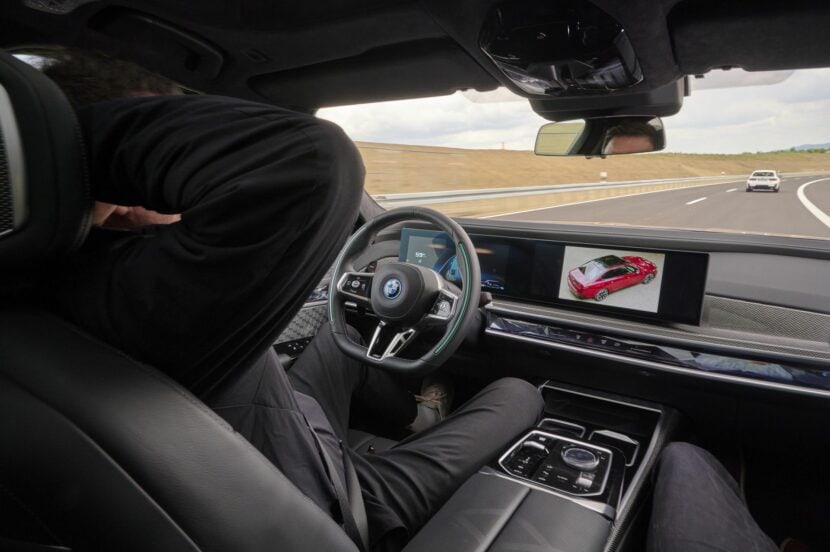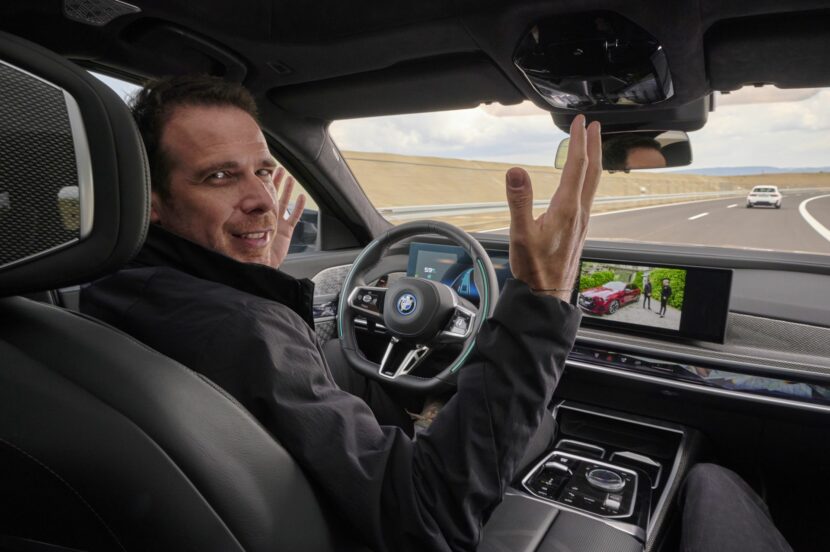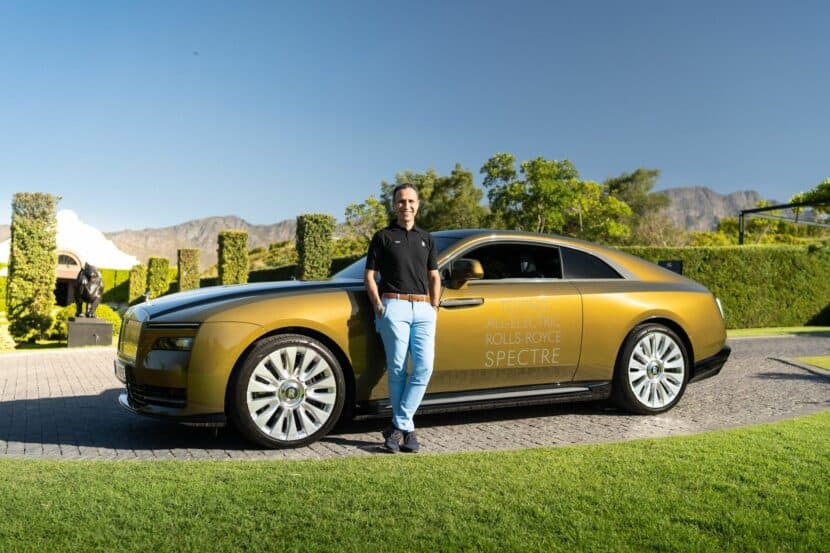
 Fast hyperlinks for take a look at:
Fast hyperlinks for take a look at:BMW’s tagline, The Final Driving Machine, has been round for many years. However within the EV period, the place sound, torque, and even steering really feel are redefined by software program, what does that mantra actually imply? Mihiar Ayoubi, Senior Vice President Driving Expertise, has been with BMW for 3 a long time. He has lived via the corporate’s transformation from purely mechanical chassis tuning to right this moment’s software-defined automobiles. With the first Neue Klasse mannequin arriving later this yr, he believes BMW is coming into a fourth period—one which could possibly be as necessary as the unique 1500 within the Sixties.
From Mechanical Chassis to the Coronary heart of Pleasure
“I’ve skilled three a long time of driving dynamics at BMW,” Ayoubi begins. “The primary was mechanical—you needed to ship driving pleasure simply via chassis design. The second was the mechatronic period, after we added intelligence with lively steering and brake programs. The third was about linked chassis, the place all of the subsystems began speaking in loops.”
He pauses, then leans in: “Now comes the fourth. The Neue Klasse is historic as a result of, for the primary time, we’ve got a wholly new physique, a totally electrical spine, and a software-defined automobile. As an alternative of closed loops, we now use a hierarchical structure. Consider it like an octopus: one central mind with many arms, immediately telling every subsystem what to do. That’s the Coronary heart of Pleasure.”
What Can not Change within the EV Period
So how does BMW make sure that its vehicles nonetheless really feel like BMWs and not using a combustion engine up entrance? “A very powerful factor is linear response,” Ayoubi says firmly. “Once you see a nook, you have to know precisely how your automobile will behave. Predictability is the whole lot.” Electrical vehicles, he explains, introduce distinctive challenges. A stiff battery pack creates a really inflexible middle part, however leaves the entrance and rear comparatively “unfastened.” With out cautious tuning, that may create an unpredictable response.
“Everybody says the low middle of gravity is the EV’s benefit. However what actually issues is the space between the roll axis and the middle of gravity. That determines how the automobile rotates. It is advisable design this into the physique from day one.”
After which there’s torque supply. “Combustion engines have been by no means quick sufficient,” he says. “That they had a pure delay. However an electrical motor reacts immediately. That may be spectacular in a straight-line demo, nevertheless it’s not a use case for on a regular basis prospects. We management forces on the wheel. That’s how we make the response linear and trustworthy.”
Making Odd Drivers Really feel Extraordinary
In testing, Ayoubi remembers, even senior executives have been stunned. “Certainly one of our board members stepped out and stated, ‘I didn’t know I used to be such a superb driver.’ He wasn’t—however the automobile made him really feel that method.” It’s not nearly lovers. “Our objective is that atypical prospects step out feeling seamless predictability, enjoyment with security. They really feel extra comfy than once they stepped into the automobile.”
“After all, we’ve got a small group of consumers who actually can drive, who can strategy the boundaries and benefit from the excessive decision of this method,” he says. “However I’m speaking in regards to the atypical buyer. I consider they may step out of the automobile feeling seamless predictability, enjoyment with security. It’s waftable. You are feeling like a greater driver.”
Certainly one of BMW’s personal challenge leaders reportedly stated the identical after testing a prototype at Sokolov, the place a lot of BMW’s dynamics growth takes place: “I really feel extra comfy now than the second I stepped into the automobile.”
That confidence has been examined underneath excessive circumstances. “Our first KPI was driving on slippery roads and winter circumstances,” Ayoubi says. I defined that throughout my very own take a look at of the BMW iX3, at 130 km/h on moist surfaces, the automobile stayed controllable. Ayoubi added: “For us, stopping over-braking and maintaining steerability remains to be an important KPI right this moment.”
Scalability and OTA Potential
The Coronary heart of Pleasure isn’t a static know-how. “We’ve got three dimensions of scalability,” Ayoubi explains. “First, throughout vehicles: one Neue Klasse can really feel naughty, one other affordable, one other secure. Second, inside a automobile: totally different driving modes for various prospects. And third, including new subsystems sooner or later—the central intelligence simply integrates them like new arms of the octopus.”
As a result of the system is software-defined, Ayoubi doesn’t rule out over-the-air monetization. “Why not?” he says candidly. “The know-how can do it. Our gross sales colleagues would possibly take into consideration promoting digital options. Think about releasing a extra dynamic setup for slalom driving. As soon as the client pays, we will ship it.”
The Problem of Warmth and Monitor Use
When requested about EVs overheating on monitor, Ayoubi factors to classes from the experimental VDX prototype. “VDX was a type of wild horse,” he admits. “It was additionally automobile the place we discovered to reinforce the management loops coming into the subsystems and bodily elements of that. However you possibly can’t undertake the whole lot from it into manufacturing vehicles. Thermal headroom remains to be a problem.”
Why BMW Didn’t Rush to Stage 3
The Neue Klasse will debut with Stage 2+ driver help, not Stage 3. For Ayoubi, the choice was clear. “We examined Stage 3, however prospects aren’t prepared. They don’t wish to lose management, particularly in cities. It’s like after we launched the primary lively anti-roll bars. We gave vehicles zero roll angle, however prospects didn’t prefer it. It took time for them to get used to it.”
Security is the opposite issue. “Loads of OEMs handled ADAS like a Wild West. However it’s simply statistics—vehicles, kilometers, probability of failure. Except you will have the best security requirements, you ship accidents day by day. We are able to’t settle for that.”
Stage 2++ Defined
The time period “Stage 2++” has turn into advertising shorthand, however Ayoubi provides two interpretations. “The constructive view is that it means we will present help in metropolis driving. With AI and neural networks, you possibly can adapt to extra complicated environments. However we at all times use a hybrid strategy—AI plus physics—to make sure transparency.”
Then he provides a warning. “The unhappy interpretation is Stage 3 minus. Some name it self-driving, however legal responsibility remains to be with the driving force. The extra consolation you give, the extra distraction you create. That’s the killing level. We determined to maintain the driving force within the loop with minor instructions—steering, braking, accelerating—whereas the system does the remainder. That steadiness is crucial.”
Redundancy and Fail-Safes
Ayoubi additionally provides a glimpse into BMW’s obsession with redundancy. “Take Stage 3 handover. If the system asks you to take management, it makes use of an acoustic warning. However what in case your audio system or microphone don’t work? Each time you begin the automobile, we ship inaudible frequencies via the audio system to check the system. Solely then will we permit deployment.”
It’s a small element, however one which illustrates BMW’s safety-first strategy.
Stage 4, However Not 5
So what’s subsequent? “Technically, we will ship Stage 4,” Ayoubi says. “The query is: is there any pull from the market? Clients want time to belief. Stage 5? Not this decade.”
The Way forward for Pleasure
In the long run, Ayoubi insists the Neue Klasse doesn’t mark the top of BMW’s DNA—it’s a reinvention. “Electrical driving is difficult,” he admits. “However should you perceive the drawbacks, you possibly can flip them into benefits. That’s what the Coronary heart of Pleasure does. The know-how modifications, however the DNA doesn’t.”










